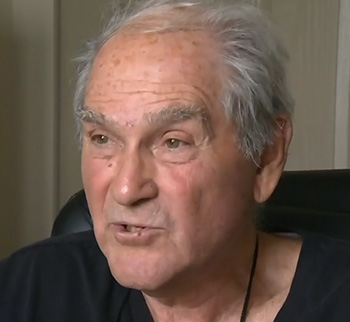WINNIPEG — Bernie Bellan, the editor and publisher of Winnipeg’s Jewish Post & News, is standing behind a columnist who used incendiary language to strongly criticize the Truth and Reconciliation Commission report into abuses against Aboriginal people in Canada.
In a June 24 column, Bill Marantz, 80, a retired judge and regular contributor to the newspaper, dismissed the TRC report, released last month, as a “waste of time.” He also said Aboriginal leaders are “too busy feathering their own headdresses” to worry about unemployment, poverty, illness, alcoholism and crime in their communities, and he used the term “paleface” to apply to non-Aboriginal Canadians.
In an online post, Bellan – who was sought out by both CBC and CTV to comment on Marantz’s column after it raised the ire of local First Nations groups – apologized to “anyone who was offended” by the piece and conceded that perhaps he should have edited out some of its more offensive language, but he stood by Marantz’s right to express his views.
In an interview with The CJN, Bellan noted that Marantz’s column offered views similar to arguments made by retired University of Manitoba professors Hymie Rubenstein and Rodney Clifton in an opinion piece in the National Post shortly after the TRC report was released. In a follow-up piece June 22 in the National Post, the professors said “skeptics of the report like ourselves have been vilified as promoting ‘colonial nostalgia’” and “using ‘racial platitudes.’”
Bellan said most media outlets refrain from reporting on Aborginal issues in any way that could be deemed controversial. “Clearly when it comes to relations between natives and non-natives, there are some subjects which are so clearly sensitive that they are simply avoided altogether,” he wrote.
He added that “anyone who reads our paper would know that we are not reluctant to tackle controversial, often ‘untouchable’ subjects. Not too long ago, I broached the subject of the Kapyong Barracks and why the possibility of its becoming an urban reserve is not considered an allowable topic for discussion within not just a good part of the Jewish community, but the community at large.”
Kapyong Barracks was a military base in south Winnipeg that was closed 10 years ago. Left standing are a couple of dozen empty houses just north of Tuxedo, one of Winnipeg’s most expensive neighbourhoods, many of whose residents are Jewish. Ownership of the area is in limbo, as a coalition of Manitoba Aboriginal groups has been fighting the federal government in court for the right to develop it as an urban reserve.
Bellan told The CJN that he and the paper have received a large number of emails and tweets criticizing Marantz, many of which contain language unfit for publication, but he said some of the emails support Marantz’s views.
“We have had some responses from people who claim to be Native who also say they agree with Marantz’s comments, but they are all anonymous,” he said. “There is a strong sense of intimidation out there.”
Bellan said he’ll publish a sampling of letters in the next issue of the paper, as well as a well-written response to Marantz by a Jewish subscriber.
In the wake of the controversy, the Jewish Federation of Winnipeg and the Centre for Israel and Jewish Affairs (CIJA) issued a joint statement condemning Marantz’s column, affirming their pride in the Winnipeg Jewish community’s strong and positive relationship with Aboriginal people.
“We have an excellent rapport with the Aboriginal Council of Winnipeg, various leaders of First Nations communities, students and individuals who are interested in exploring and enhancing the Jewish/Aboriginal relationship, and with the Norway House First Nation, with whom we have developed programs and delegations to Israel,” the statement said.
“It is, therefore, with great dismay that we read the Bill Marantz piece in the Jewish Post & News. While we uphold everyone’s right to freedom of expression, we are appalled by Marantz’s article. His opinions are not shared by the Jewish community of Winnipeg. In fact, it’s quite the opposite. We are always looking for ways to build even stronger ties with our Aboriginal brethren.”
